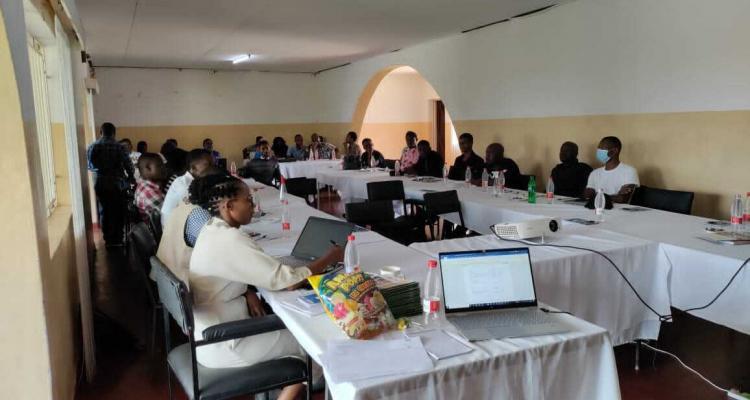
As the cases of wildlife crime are on rise, Lilongwe Wildlife Trust has trained journalists in the country to follow and report court case procedures on Wildlife crimes accurately and in a professional manner.
Lilongwe Wildlife Trust Head of Campaigns and Advocacy Samantha Nampuntha said they thought of organizing the training to make journalist familiar with different court terms so that they can write good stories that Malawians can understand about Wildlife Crimes and its consequences.
She added that back in 2018 there was lack of information on wildlife crimes but today people are aware of wildlife because of the media more especially the cases to do with pangolins.
She pledged to continue supporting the media in different aspects containing Wildlife so that Wildlife crimes can be put to an end in the country.
“We have seen a number of articles talking about arrest, conviction, and sentencing of Wildlife and Forestry crimes. We figured out that it was a good time to give media some training about this court processes and definition around legal terms so that people can understand better and write good stories,” she explained.
On his part, Malawi Broadcasting Corporation (MBC) journalist Mayeso Chikhadzula appreciated Lilongwe Wildlife Trust for organizing the training saying it is an eye opener to Journalists as they will now be able to write Wildlife court case stories using legal terms to avoid miscommunicating to the audience.
Most wildlife and forest crimes are prosecuted under the National Parks and Wildlife (Amendment) Act 2017 and the Forestry (Amendment) Act 2019. However, wildlife crimes can also include offences under the Customs and Excise Act, Financial Crimes Act, Penal Code, Corrupt Practices Act. Malawi has one of the strongest wildlife laws in the world, with penalties of up to 30 years in custody.
Malawi has made substantial progress in combating wildlife crime since 2016, including passing new wildlife and forestry legislation. Wildlife crime is now considered a serious crime, and the recent prosecution of a major criminal syndicate trading in ivory, rhino horn and pangolin scales resulted in custodial sentences totaling 56 years, including several individual sentences of 11 years.














